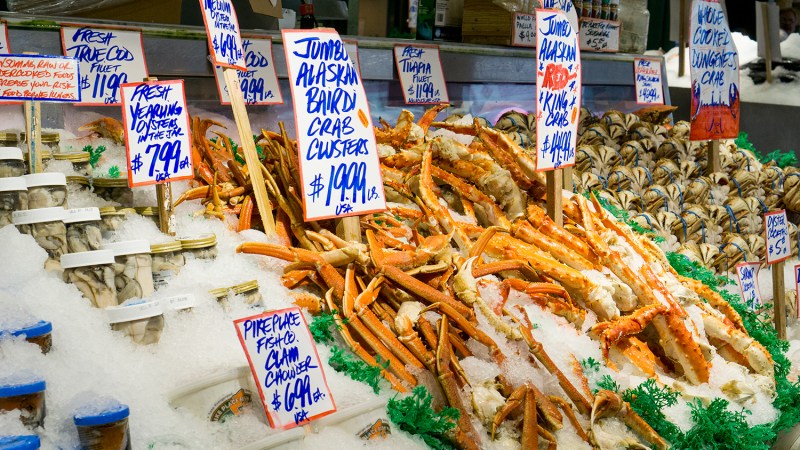In a turn that can only described as unprecedented, officials have canceled the 2022 Alaska snow crab season. It’s a first for the fishery and a major sign that climate change is altering the ocean as we know it. According to the EPA, the crabs, along with other cold-water Bering Sea species like Pacific halibut, have been moving farther out to sea since the 1980s.
Scientists and state officials have been monitoring populations for some time. According to The Guardian, last year’s snow crab harvest was one of the smallest in four decades. While this is the first time the snow crab catch has been halted, it’s almost become the new norm for other species. The fall king crab season was canceled in both 2021 and 2022. Those in the know project that billions (yes, with a “b”) of snow crabs have vanished from their usual Bering Sea spots.

Overfishing and disease may be factors but Michael Litzow, the Kodiak lab director for NOAA Fisheries, told CNN that climate change “caused the collapse.” Warmer weather has been more dramatic in the Arctic and is dramatically changing the oceanic environment there. Melting ice caps, warmer water temperatures, and changes in the ocean’s chemistry have all combined to push the crustaceans out. Experts estimate a decline in the snow crab population to the tune of 90 percent over the last several years. That means the fishery has gone from some 8 billion snow crabs to 1 billion between 2018 and now.
The hope, of course, is to ease outside pressure and allow the population to rebound. Unfortunately, this will almost certainly put many in the fishing community out of work. And, without a snow crab season, seafood restaurants will suffer as well. Seafood is Alaska’s largest export, bringing in some $3.3 billion annually. Perhaps that’s no surprise, given that Alaska has the most coastline of any U.S. state, by far.
Snow crabs are one of the most important commercially fished species in the state. The only Alaskan species that tend to produce more catch weight per year are Dungeness and king crab. Snow crabs and prized for their meaty physique and tend to live in the cold waters of places like Alaska and Maine. The canceled catch will likely cause many outfits in the area to go out of business. As reported, the Alaska Bearing Sea Crabbers (ABSC) is a pretty small, tight-knit organization of some 60 vessels equipped to handle the notoriously treacherous sea and harvest crabs. Many are family-run.
The cancellation was formally announced on Monday by the Alaska Department of Fish and Game. There’s a smaller bairdi crab (a different sub-species of snow crab) catch that some may go for instead, but all in all, without snow crab this year, it’s going to be a long winter for Alaskan crabbers. Worse, it’s one more dramatic example of climate change wreaking havoc; another call to arms for politicians and lawmakers to exact some real, imminently needed change.
Experts will monitor conditions going forward, opening fisheries accordingly. There’s a good chance that there will be a significant pause to allow the population to rebound. That, and the better crabbing zones will likely continue to push north. As big fans of both crab and Alaska, we hope the community can find other resources, get some federal aid, and actively participate in efforts to curb global warming.


